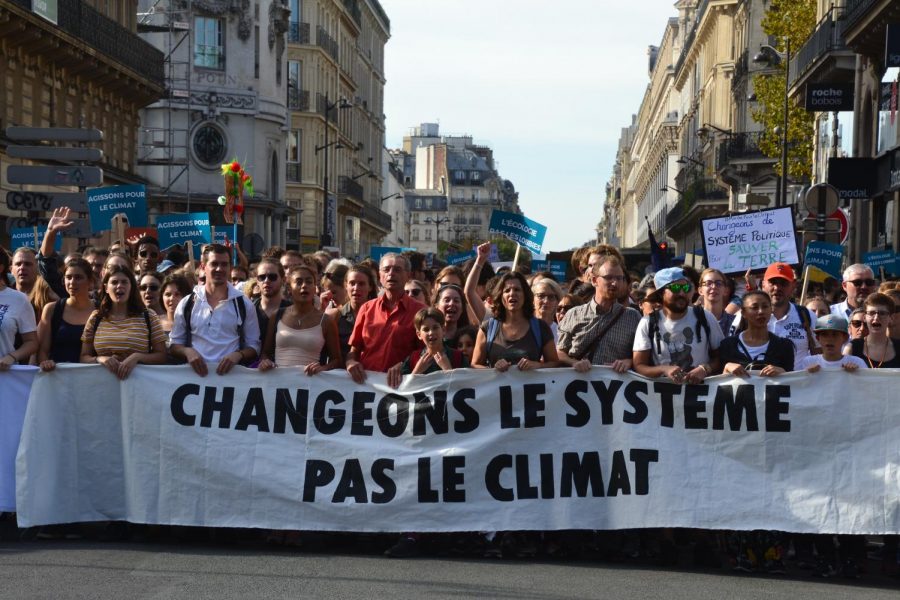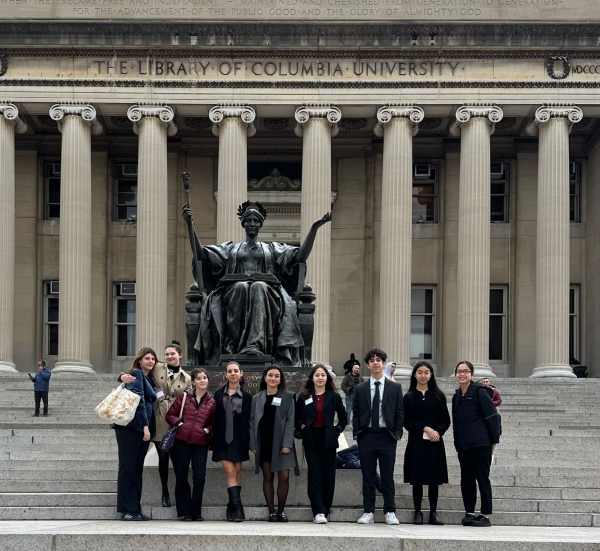COP27 and What’s Next
Photo by Jeanne Menjoulet
“Climate change protesters march in Paris streets”
COP, the annual international climate summit, if often heralded as a symbol of global action on climate change. But it can sometimes be hard to look beyond the headlines to understand what COP is and how effective it is at accomplishing its goals.
What is COP/COP27?
The United Nations Climate Change Conference of the Parties, known as the COP, is an annual summit attended by U.N. countries that are part of the U.N. Framework Convention on Climate Change (UNFCCC). At COPs, world leaders come together to discuss the progress being made towards tackling climate change over a two-week series of conferences. Every year, the list of countries participating in the COP changes, but the G20 – 19 countries plus the EU – always attends. It includes developing and industrialized countries with the largest economies in the world, and as of 2016 all member nations signed a pact to help facilitate the 2030 “sustainable development goals,” known as the SDGs. At the COPs, the voices of the G20 are especially important, given that this group comprises most of the world’s largest carbon emitters.
This year’s Conference of the Parties took place from November 6th to 18th in Sharm el-Sheikh, Egypt, and marked the 27th summit.
Why was Egypt hosting COP27 controversial?
This year’s climate summit, COP27, was controversially held in Sharm el-Sheikh, Egypt. Human rights activists, researchers, and environmentalists were angered by Egypt’s hosting, because of the country’s mistreatment of its civil society groups and activism organizations. Egypt’s official government, the Arab Republic of Egypt, has been scrutinized for its intolerance of activism. Its detention centers host an estimated 65,000 political prisoners. Egyptian authorities have used imprisonment as a method of silencing activists like Alaa Abd el-Fattah, who began a water strike on the day COP27 began and was later followed and arrested. Egyptian government officials have also banned non-governmental organizations from receiving funding abroad, cutting off a crucial resource for prominent activist groups, such as ones for civil rights and climate justice. Major heads of these civil society groups have also been banned from travel, a few even having their bank accounts frozen. Dozens of these activists are now prohibited from entering the country as a consequence of their work, meaning that some of Egypt’s most impassioned climate justice workers were unable to attend this year’s COP. It is not just the government who is intolerant of activist NGOs; in addition to arrests and shutdowns, these groups have been the targets of raids and violent hate crimes. Renowned climate activist, Greta Thunberg, spoke on her refusal to attend COP27, mentioning the injustice in Egypt: “[This year’s climate summit] is being held in a tourist paradise in a country that violates many basic human rights”. The next conference, COP28, is said to be held in Dubai in the United Arab of Emirates, another widely unpopular choice. The country has been proven guilty of aiding the Egyptian authorities in deporting Egyptian nationals back to Egypt. Further, due to the close alliance between Egypt and the UAE, many of the activists forced to sit out COP27 will be in the same position at the next one.
Why was COP27 significant?
The most significant development after this year’s COP was the agreement to a Loss and Damage fund. This fund is for developing countries that are not contributing greatly to carbon emissions while simultaneously being hit the hardest by climate change. The Loss and Damage fund will collect money to repair devastation caused by increasingly frequent natural disasters, rising sea levels, and growth of desert land. Developed nations with high carbon emissions, especially the U.S., China, and the entire EU, are set to be the main contributors. At this year’s COP, a central goal for the EU was to certify that countries classed as ‘developed’ at the signing of the UNFCCC in 1992 are donors to the fund, because these ‘developed’ countries currently have no requirement to cut emissions or contribute funds. One can assume this is because developed countries benefit economically from fossil fuels and other carbon emitting manufacturing processes. However, the exact sum each country will be donating, the frequency of the donations, as well as the benefactor countries, have yet to be decided, which will undoubtedly be the focal point of next year’s COP in Dubai. Yet many participants in this year’s Climate Conference wanted the focus of COP to return to the agreements made at the 2021 COP in Glasgow. These target phasing out all fossil fuels and working on adaptation to climate change induced disasters.
In what specific ways was COP27 ineffective?
This year’s COP ended mostly in disappointment, with only a few silver linings. The agreement on the loss and damage fund was one of the only major establishments of the summit. Mostly, researchers were frustrated by the lack of initiative to address important restrictions on the use of fossil fuels. A few key deals made at COP26 were disregarded at this year’s COP. Specifically, the commitments to limiting global temperature rise at 1.5 degrees Celsius higher than pre-industrialization levels, and keeping 2025 as the target for the peak of global emission. Alok Sharma, British politician and president of last year’s COP in Glasgow, emphasized the need to phase out all fossil fuels by introducing a plan of action and asking for agreement. Present at COP27, Sharma attempted to further the fossil-fuel-free movement, yet his ideas were reduced to the phase-out of coal—something which had already been agreed upon the previous year. Some of the largest oil producing states, such as the United States and China, failed to demonstrate any real ambition for decarbonization, but announced their partnership for confronting climate change—a somewhat positive takeaway. As the two biggest carbon emitters, this alliance will be crucial for the international attempt to control the climate crisis.
What are the criticisms of COP?
While COP is a necessary tool for combating climate change, it has been criticized for its lack of genuine action. Many argue that the conference in itself does not reach its aim and that the attending leaders are pretending to do more than they actually are. As said by Greta Thunberg, one of the most prominent young adults in climate activism, “COPs are mainly used as an opportunity for leaders and people in power to get attention, using many different kinds of greenwashing”. In this case,“greenwashing” refers to the unsubstantiated claim made by political figures to deceive the public into believing they are active in the environmental sustainability movement. Critics of COP claim it is used by delegates primarily for political gain by favoring the public eye, thus meaning their promises are insubstantial. Sunita Narain, director-general of the Centre for Science and Environment, worries that the core purpose of COP, to hold world leaders accountable for their impact on climate change and push them to commit to a plan of action, has been lost. She states, “the negotiations that are happening are completely devoid of reality. I have never seen anything like this. We’ve reduced the whole thing into a grand spectacle.”
What issues does COP (28, 29, 30) need to address in coming years?
The agreement to create a Loss and Damage fund is not the end of the rapid changes the world needs to make to grapple with climate change. Looking ahead to COP28, many journalists and environmental activists agree that the participants in the summit need to refocus their aims. Countries need to follow up on the agreements made at the 2015 Paris Climate Summit and the 2021 Glasgow Climate Summit and make promises for change that are not empty. Ambition to stop the increase in temperature at 1.5 degrees Celsius, financial compensation for global warming-induced devastation, and adaptation to these effects are the three central pillars of the conferences which need to be acted on with equal dedication. Focusing only on one, which COP27 did by only making progress in the financial compensation department, is not acceptable. As António Guterres, Secretary General of the UN, warned: “Our planet is still in the emergency room. We need to drastically reduce emissions now – and this is an issue this COP did not address. The world still needs a giant leap on climate ambition”.

Hello! My name is Chloe Fong, and I’m a T3. This is my second year at UNISVerse. I love reading and attempting to recreate the food recipes I see online!













